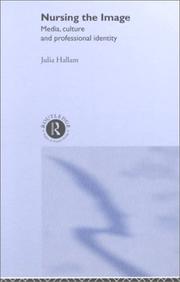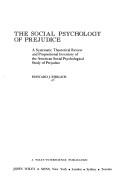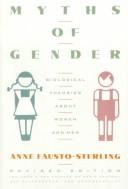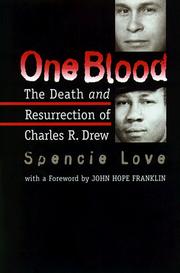| Listing 1 - 10 of 37 | << page >> |
Sort by
|

ISBN: 0415924618 1003061621 1000143333 1280316888 0203903609 0585448639 9781000101027 1000101029 9781003061625 9781000117974 1000117979 9781000143331 0946960402 9780585448633 9780203903605 9780415928144 0415928141 9780415924610 0203903641 9780203903643 Year: 2001 Publisher: New York Routledge
Abstract | Keywords | Export | Availability | Bookmark
 Loading...
Loading...Choose an application
- Reference Manager
- EndNote
- RefWorks (Direct export to RefWorks)
White Racism reveals the continuing reality of racism in the United States. The authors focus on a series of notorious racial incidents revealing white racism to be a fundamental social practice embedded in cultural and political institutions.
Racism --- United States --- Race relations. --- Ethnopsychology --- Prejudice --- Race Relations --- Anti-Semitism --- Implicit Bias --- Islamophobia --- Anti Semitism --- Anti-Semitisms --- Bia, Implicit --- Bias, Implicit --- Islamophobias --- Prejudices --- history

ISBN: 0203136020 1134668260 1280018658 0203171152 9786610018659 9780203171158 9780203136027 9780415184540 0415184541 9780415184557 041518455X 9781134668267 9781134668212 113466821X 9781134668250 1134668252 0415184541 041518455X Year: 2000 Publisher: London New York Routledge
Abstract | Keywords | Export | Availability | Bookmark
 Loading...
Loading...Choose an application
- Reference Manager
- EndNote
- RefWorks (Direct export to RefWorks)
Ideas of 'nursing' and 'nurses' carry a powerful social charge. The image of the nurse continues to be a symbol of caring and of duty at the same time as it projects a view of femininity, 'stereotypical' in its gender relations.How has this image come to be constructed?An empirical investigation of representations of nursing practices in Britain focusing on publicity and promotional materials and their relationship to popular fictional narratives reveals a strong correlation between what are usually described as discrete forms of signification. Recruitment images, provide an
Nurses. --- Stereotyping. --- Prejudice. --- Social Perception. --- Feminism. --- Stigmatization --- Social Perception --- Nursing Personnel --- Personnel, Nursing --- Registered Nurses --- Nurse --- Nurse, Registered --- Nurses, Registered --- Registered Nurse --- Feminist Ethics --- Ethics, Feminist --- Women's Rights --- Perception, Social --- Perceptions, Social --- Social Perceptions --- Anti-Semitism --- Implicit Bias --- Islamophobia --- Anti Semitism --- Anti-Semitisms --- Bia, Implicit --- Bias, Implicit --- Islamophobias --- Prejudices --- United Kingdom. --- Great Britain --- Isle of Man --- Nurses --- Sex role --- Professional socialization --- Nursing --- Feminist theory. --- Social perception --- Stereotyping (Printing) --- Public opinion. --- Psychology. --- Social aspects

ISBN: 047123415X 9780471234159 Year: 1973 Publisher: New York (N.Y.): Wiley
Abstract | Keywords | Export | Availability | Bookmark
 Loading...
Loading...Choose an application
- Reference Manager
- EndNote
- RefWorks (Direct export to RefWorks)
Prejudices --- Social interaction --- Social psychology --- Prejudice. --- Psychology, Social. --- 159.923.33 --- Human interaction --- Interaction, Social --- Symbolic interaction --- Exchange theory (Sociology) --- Psychology --- Bias (Psychology) --- Prejudgments --- Prejudice --- Prejudices and antipathies --- Attitude (Psychology) --- Emotions --- Social Psychology --- Psychologies, Social --- Social Psychologies --- Sociale invloeden op het karakter. Sociale psychologie--(invloed van de omgeving op het individu;z.o.{316.6}) --- Prejudices. --- Social interaction. --- 159.923.33 Sociale invloeden op het karakter. Sociale psychologie--(invloed van de omgeving op het individu;z.o.{316.6}) --- Psychology, Social --- Psychology, Perceptual --- Perceptual Psychology --- Anti-Semitism --- Islamophobia --- Anti Semitism --- Anti-Semitisms --- Islamophobias --- Implicit Bias --- Bia, Implicit --- Bias, Implicit

ISBN: 0465047912 Year: 1985 Publisher: New York (N.Y.): Basic Books
Abstract | Keywords | Export | Availability | Bookmark
 Loading...
Loading...Choose an application
- Reference Manager
- EndNote
- RefWorks (Direct export to RefWorks)
Identification (Psychology) --- Prejudice. --- Sex Characteristics. --- #SBIB:HIVA --- #SBIB:316.346H00 --- Sex Differences --- Sex Dimorphism --- Characteristic, Sex --- Characteristics, Sex --- Difference, Sex --- Differences, Sex --- Dimorphism, Sex --- Dimorphisms, Sex --- Sex Characteristic --- Sex Difference --- Sex Dimorphisms --- Sex --- Prejudices --- Identification --- Identifications (Psychology) --- Man-vrouw-studies, gender: algemeen --- Sexual Dimorphism --- Dimorphism, Sexual --- Dimorphisms, Sexual --- Sexual Dimorphisms --- Anti-Semitism --- Islamophobia --- Anti Semitism --- Anti-Semitisms --- Islamophobias --- Identification, Psychology --- Identifications, Psychological --- Identifications, Psychology --- Psychological Identification --- Psychological Identifications --- Psychology Identification --- Psychology Identifications --- Gender Characteristics --- Gender Differences --- Gender Dimorphism --- Sexual Dichromatism --- Characteristic, Gender --- Dichromatism, Sexual --- Dichromatisms, Sexual --- Dimorphism, Gender --- Gender Characteristic --- Gender Difference --- Gender Dimorphisms --- Sexual Dichromatisms --- Sexual Selection --- Implicit Bias --- Bia, Implicit --- Bias, Implicit --- Prejudice --- Sex Characteristics

ISBN: 0807863068 9780807863060 0807822507 9780807822500 0807846821 9780807846827 9798890880710 Year: 1996 Publisher: Chapel Hill, NC
Abstract | Keywords | Export | Availability | Bookmark
 Loading...
Loading...Choose an application
- Reference Manager
- EndNote
- RefWorks (Direct export to RefWorks)
One Blood traces the life of the famous black scientist and surgeon Dr. Charles Drew and the well-known legend about his death. On April 1, 1950, Drew, then forty-five years old, died after an auto accident in rural North Carolina. Within hours, rumors spread: he had bled to death because a whites-only hospital refused to treat him.
Discrimination in medical care --- Race relations --- African Americans. --- Physicians. --- Delivery of Health Care --- Prejudice. --- Race Relations. --- Race relations (in religion, folklore, etc.) --- Interracial Relations --- Racial Relations --- Interracial Relation --- Relation, Interracial --- Relations, Interracial --- Relations, Race --- Relations, Racial --- Psychology, Social --- Race discrimination in medical care --- Medical care --- Anti-Semitism --- Implicit Bias --- Islamophobia --- Anti Semitism --- Anti-Semitisms --- Bia, Implicit --- Bias, Implicit --- Islamophobias --- Prejudices --- Physician --- African-Americans --- African American --- African-American --- Afro-American --- Afro-Americans --- Afro American --- Afro Americans --- American, African --- History --- history. --- Drew, Charles Richard, --- Drew, Charles R. --- Death and burial. --- Legends. --- United States --- United States. --- Race relations. --- Race question --- Black Americans --- American, Black --- Americans, Black --- Black American --- Negro --- African Americans --- Blacks --- Negroes

ISBN: 0415908086 0415908078 9780415908078 9780415908085 1135200009 0203700287 1135200017 1306518520 9780203700280 Year: 1994 Publisher: New York, N.Y. Routledge, Taylor & Francis Group
Abstract | Keywords | Export | Availability | Bookmark
 Loading...
Loading...Choose an application
- Reference Manager
- EndNote
- RefWorks (Direct export to RefWorks)
In this book, the author shares her philosophy of the classroom, offering ideas about teaching that fundamentally rethink democratic participation. She writes about a new kind of education, education as the practice of freedom. She advocates the process of teaching students to think critically and raises many concerns central to the field of critical pedagogy, linking them to feminist thought. In the process, these essays face squarely the problems of teachers who do not want to teach, of students who do not want to learn, of racism and sexism in the classroom. Teaching students to "transgress" against racial, sexual, and class boundaries in order to achieve the gift of freedom is, for the author, the teacher's most important goal. -- From back cover.
Educational sciences --- Critical pedagogy --- Enseignement (Activité) --- Feminism and education --- Feminisme en onderwijs --- Féminisme et enseignement --- Kritische pedagogie --- Onderwijs (Activiteit) --- Pédagogie critique --- Teaching --- United States --- Critical thinking --- Study and teaching --- Feminism and education. --- Education --- Feminism --- Prejudice --- Thinking --- 37.01 --- Lerarenopleiding; Educatieve Master --- Vooroordelen ; partijdigheid --- Racisme --- Feminisme --- Kritische pedagogiek --- Paulo Freire --- Multiculturalisme --- Critical Thinking --- Thinking Skills --- Thought --- Thinking Skill --- Thinking, Critical --- Thoughts --- Anti-Semitism --- Islamophobia --- Anti Semitism --- Anti-Semitisms --- Islamophobias --- Prejudices --- Feminist Ethics --- Ethics, Feminist --- Women's Rights --- Activities, Educational --- Educational Activities --- Workshops --- Literacy Programs --- Training Programs --- Activity, Educational --- Educational Activity --- Literacy Program --- Program, Literacy --- Program, Training --- Programs, Literacy --- Programs, Training --- Training Program --- Workshop --- Students --- Didactics --- Instruction --- Pedagogy --- School teaching --- Schoolteaching --- Instructional systems --- Pedagogical content knowledge --- Training --- Education and feminism --- Critical humanism in education --- Radical pedagogy --- Critical theory --- Popular education --- Transformative learning --- Onderwijs ; theoretische beschouwingen --- education --- Implicit Bias --- Bia, Implicit --- Bias, Implicit --- Critical pedagogy. --- Teaching. --- Study and teaching. --- Education, Humanities --- vooroordelen --- intercultureel onderwijs --- United States of America --- Gender --- Multiculturalism --- Racism --- Social class --- Theory --- Book

ISBN: 0521597072 0521592828 0511054351 0511613040 0511155166 Year: 1999 Volume: 11 Publisher: Cambridge : Cambridge University Press,
Abstract | Keywords | Export | Availability | Bookmark
 Loading...
Loading...Choose an application
- Reference Manager
- EndNote
- RefWorks (Direct export to RefWorks)
It is widely recognised that men and women in societies all over the world have very different experiences of sickness and health. This collection brings together biological and social anthropologists whose work illustrates how these sub-disciplines have approached the task of explaining such differences. We demonstrate that an understanding of science and culture, using the notions of biological 'sex' and socio-culturally constructed 'gender' are both essential for furthering analyses of men's and women's, boys' and girls' experiences of health and disease. We address the important topics of gender differences in parental care, cardiovascular disease, reproductive health and psychological illness, and look at how the medicalisation of women and their relative absence from models of population health might affect their experiences of preventative health measures. This book will be particularly useful for students on human sciences or anthropology courses, or anyone wishing to gain an interdisciplinary perspective on the subject.
Anthropologie médicale --- Antropologie [Medische ] --- Medical anthropology --- Medische antropologie --- Health --- Medical anthropology. --- Cross-cultural studies. --- Sex differences. --- Sex Factors --- Anthropology, Cultural --- Disease Susceptibility --- Prejudice --- Women's Health --- gender --- sekseselectie (geslachtsselectie) --- gezondheid --- Woman's Health --- Womens Health --- Health, Woman's --- Health, Women's --- Health, Womens --- Prejudices --- Cultural Anthropology --- Ethnography --- Ethnographies --- Qualitative Research --- Normalcy --- Normality --- Normalities --- Personal health --- Wellness --- Medicine --- Physiology --- Diseases --- Holistic medicine --- Hygiene --- Well-being --- Medical care --- Anthropology --- Susceptibility, Disease --- Diathesis --- Diatheses --- Disease Susceptibilities --- Susceptibilities, Disease --- Factor, Sex --- Factors, Sex --- Sex Factor --- genre --- sélection de sexe (choix du sexe) --- santé --- Anthropological aspects --- Cross-cultural studies --- Sex differences --- Anti-Semitism --- Islamophobia --- Anti Semitism --- Anti-Semitisms --- Islamophobias --- Material Culture --- Culture, Material --- Material Cultures --- Implicit Bias --- Bia, Implicit --- Bias, Implicit --- Life Sciences --- General and Others
Book
ISBN: 0585495157 9780585495156 Year: 2003 Publisher: Fort Worth, Tex. TCU Press
Abstract | Keywords | Export | Availability | Bookmark
 Loading...
Loading...Choose an application
- Reference Manager
- EndNote
- RefWorks (Direct export to RefWorks)
African American women --- African Americans --- African American nurses --- Nurses/ --- Prejudice. --- African Americans. --- Afro-American nurses --- Negro nurses --- Nurses, African American --- African Americans in medicine --- Nurses --- Afro-Americans --- Black Americans --- Colored people (United States) --- Negroes --- Africans --- Ethnology --- Blacks --- Afro-American women --- Women, African American --- Women, Negro --- Women --- African-Americans --- African American --- African-American --- Afro-American --- Afro American --- Afro Americans --- American, African --- Anti-Semitism --- Implicit Bias --- Islamophobia --- Anti Semitism --- Anti-Semitisms --- Bia, Implicit --- Bias, Implicit --- Islamophobias --- Prejudices --- Nursing Personnel --- Personnel, Nursing --- Registered Nurses --- Nurse --- Nurse, Registered --- Nurses, Registered --- Registered Nurse --- Green, Helen G., --- American, Black --- Americans, Black --- Black American --- Black people --- Texas, East --- Tyler (Tex.) --- Dallas (Tex.) --- Race relations. --- East Texas --- City of Dallas (Tex.) --- Negro --- Nurses.

ISBN: 0300147279 058536429X 9780585364292 9780300147278 0300076045 9780300076042 0300076045 Year: 2008 Publisher: New Haven, CT : Yale University Press,
Abstract | Keywords | Export | Availability | Bookmark
 Loading...
Loading...Choose an application
- Reference Manager
- EndNote
- RefWorks (Direct export to RefWorks)
Over the course of the past century, sexual liberation has transformed the way in which most of us regard our bodies and live our sexual lives. Now a preeminent psychoanalytic theoretician on sex and gender discusses what has gone into this unquiet revolution-the roles played by sexologists and psychoanalysts, antibiotics and birth control, the liberation movements, and Freud's insight that sex has as much to do with the mind as with the genitals.In this collection of new and previously published papers, Ethel Person writes of the centrality of sexuality to our identity. She describes the role of fantasy in desire, its different expression in the sexes, and the way in which desire is inevitably intertwined with power. Her classic papers on transvestism, transsexualism, and cross-dressing homosexuals, written with Lionel Ovesey, help us to understand how gender and sex develop in all of us. The public acceptance of the transsexual, says Person, is emblematic of the profound scientific and intellectual shifts that have taken place in the past hundred years. The way that sex and gender develop and are experienced and expressed is the resultnot only of nature and nurture but also of the cultural zeitgeist, its unspoken values and biases.
Gender identity. --- Sex differences (Psychology) --- Sex discrimination against women. --- Sex role --- Sex role. --- Gender Identity. --- Prejudice --- Women. --- Anti-Semitism --- Implicit Bias --- Islamophobia --- Anti Semitism --- Anti-Semitisms --- Bia, Implicit --- Bias, Implicit --- Islamophobias --- Prejudices --- Gender role --- Sex (Psychology) --- Social role --- Gender expression --- Sexism --- Discrimination against women --- Subordination of women --- Women, Discrimination against --- Feminism --- Sex discrimination --- Women's rights --- Male domination (Social structure) --- Sex identity (Gender identity) --- Sexual identity (Gender identity) --- Identity (Psychology) --- Queer theory --- Girls --- Woman --- Women's Groups --- Girl --- Women Groups --- Women's Group --- Gender --- Gender Identities --- Identity, Gender --- Transgender Persons --- Psychological aspects. --- Sex differences (Psychology). --- Psychoanalyse --- Psychoanalytische theorie. --- Gender roles --- Gendered role --- Gendered roles --- Role, Gender --- Role, Gendered --- Role, Sex --- Roles, Gender --- Roles, Gendered --- Roles, Sex --- Sex roles --- Gender dysphoria --- Prejudice.
Book
ISBN: 3030856682 3030856674 Year: 2021 Publisher: Cham : Springer International Publishing AG,
Abstract | Keywords | Export | Availability | Bookmark
 Loading...
Loading...Choose an application
- Reference Manager
- EndNote
- RefWorks (Direct export to RefWorks)
This open access book analyzes barriers to inclusion in academia and details ways to create a more diverse, inclusive environment. It describes the implementation of UC Davis ADVANCE, a grant program funded by the National Science Foundation, to increase the hiring and retention of underrepresented scholars in the STEM fields (science, technology, engineering and mathematics) and foster a culture of inclusion for all faculty. It first describes what the barriers to inclusion are and how they function within the broader society. A key focus here is the concept of implicit bias: what it is, how it develops, and the importance of training organizational members to recognize and challenge it. It then discusses the limitations of data collection that is guided by the convention assumption that being diverse automatically means being inclusive. Lastly, it highlights the importance of creating a collaborative, interdisciplinary, and institution-wide vision of an inclusive community.
Higher & further education, tertiary education --- Educational strategies & policy --- Education --- Implicit Bias in Academia --- Barriers Faced by Latina Scholars in STEM --- Creating Inclusive Campus Climates --- The Role of Bias in Faculty Evaluation, Hiring and Promotion --- Best Practices in Organizational Learning About Bias --- Barriers to Inclusion --- Data-Driven Decision Making --- Role of Culture in Institutional --- Assessing Institutionalization of Bias --- Institutional Transformation --- Building Inclusive Communities --- Mentorship --- Professional Networking --- Campos Model --- Barriers to Inclusion of Latinas in STEM --- NSF ADVANCE IT program --- Organizational Learning --- Understanding Discrimination --- Open Access --- Discriminació en l'educació --- Educació inclusiva --- Ensenyament inclusiu --- Escola inclusiva --- Inclusió (Educació) --- Pedagogia de la diferència --- Pedagogia inclusiva --- Adaptacions curriculars --- Educació especial --- Integració escolar --- Discriminació en l'ensenyament --- Educació --- Discriminació sexual en l'educació
| Listing 1 - 10 of 37 | << page >> |
Sort by
|

 Search
Search Feedback
Feedback About UniCat
About UniCat  Help
Help News
News